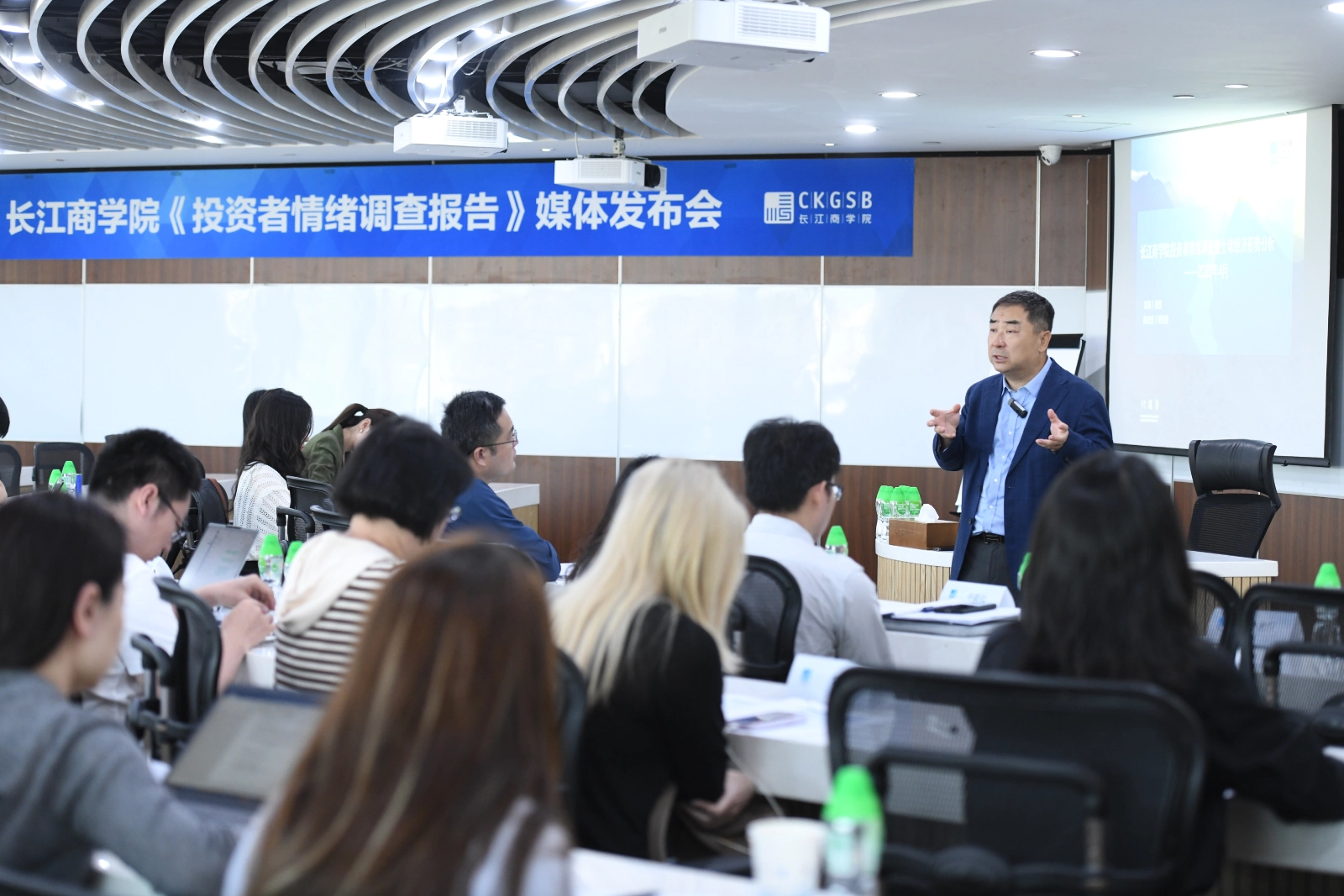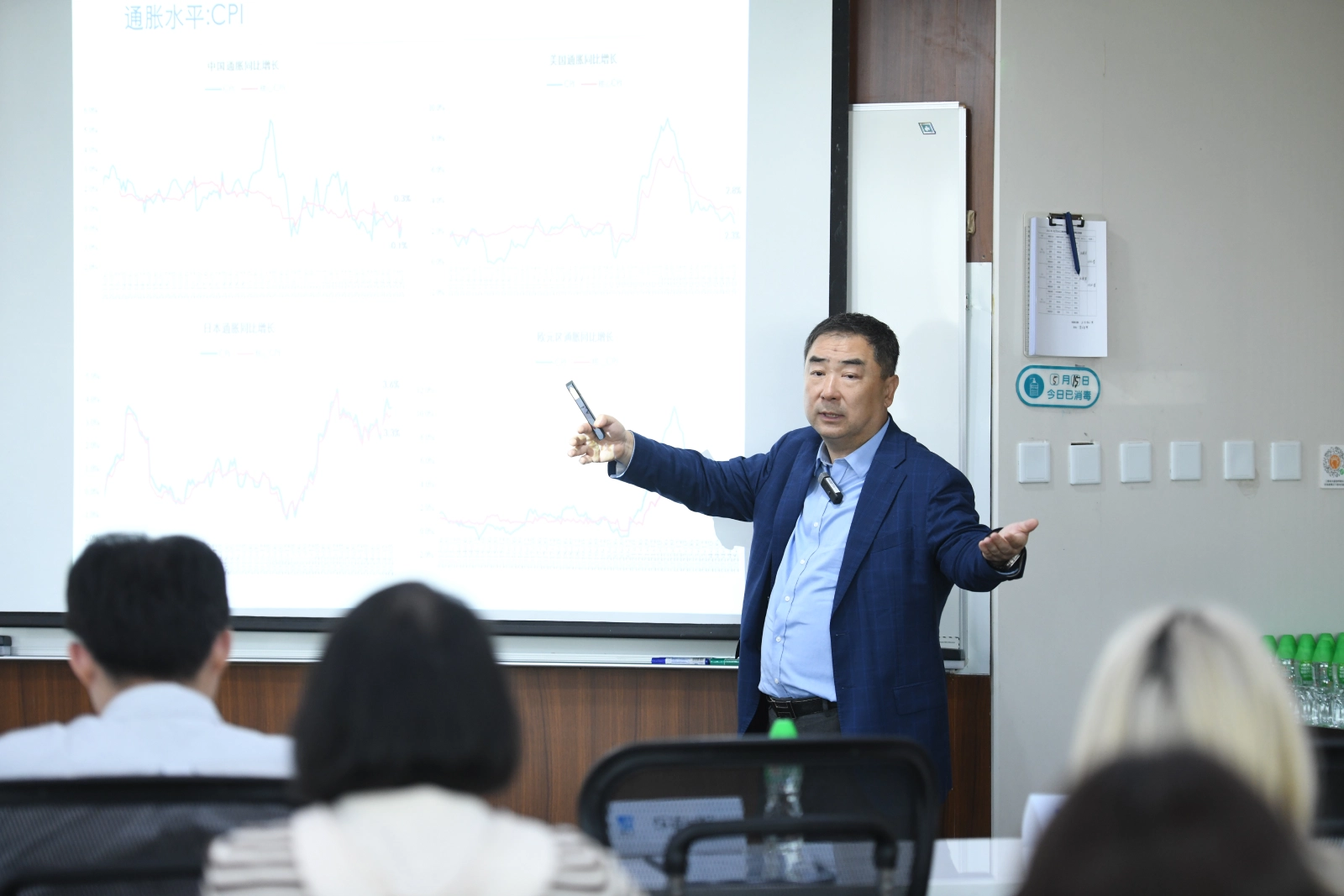
CKGSB Investor Sentiment Survey’s Q1 report records, in April 2025, 16.3% of net increase in the number of people willing to invest in gold, up 17 percentage points since October 2018. The net increase in expressed willingness to invest in bonds was 16.8%, up 17.2 percentage points since October 2018. Investor sentiment as such indicates a retreat to safe harbors in rocky times, and indeed Spring 2025 has put considerable downward pressure on investor sentiment, headlined by the sluggish domestic real estate market, and, more importantly, US tariff hikes implemented as this survey went out.
Respondents this quarter expressed notably high concerns about international relations and the impact on their investment decisions. About 63.6% of respondents found Sino-US relations to have a major contributing impact on investment, about 56.8% of the respondents considered China’s relations with Western countries very important, and about 58.8% believed that if the trade relationship between China and the United States broke down, China would feel heavy short-term pressure.
Real estate, the main source of wealth for the vast majority of Chinese families, has fallen in value ever since August 2020, with a major knock-on effect on consumer sentiments. Investors’ mood regarding China’s real estate market are in line with housing market trends. Things are better than in Q3 2024, with sentiment having reached rock bottom in September 2023, before beginning to climb. In this round of investigation (April 2025), about 52.5% of respondents said they believed housing prices would rise, up 4.9 percentage points on September 2023. The expected rate of return on housing prices had grown to about 0.7%, up 0.9 percentage points from September 2023.
It also found investors’ expectations for China’s A-shares to be consistent with the trajectory of the stock market itself. As with A-shares, investor sentiment hit rock bottom in July 2024, climbed sharply in last November, and sunk again this Spring (but not as far as last July this time). However, after November’s net increase in willingness to invest of 11.3% over July 2024, this April saw future willingness to invest reaching 12.7%.
In the survey, about 58.2% of respondents believed that boosting domestic demand would have a big impact on future investment. At China’s Central Government Economic Work Conference held in December 2024, “vigorously boosting consumption, improving investment efficiency, and expanding domestic demand in all directions” were listed first among nine key economic tasks the government set for itself.
Investors were confident that China is in a leading position in important scientific and technological fields and that this would result in significant growth. In this survey, about 54.4% of respondents responded that China was a world leader in AI, an increase of 14.7 percentage points from November 2024. About 55% of respondents believed that China was a world leader in the new energy sector, an increase of 19.2 percentage points from April 2021.
The survey’s authors—Dr Liu Jing, CKGSB Professor of Accounting and Finance, and CKGSB researcher Chen Hongya—noted that the reform-minded sample was clear that the status of the private economy is crucial to their future investment decisions, with 44.5% of respondents affirming this view in April 2025. Three quarters of all respondents found that continuity and stability regarding macroeconomic policies should be safeguarded. A total of 65.9% said private businesses should be given the same status as state-owned enterprises in the political economy.
About 33.2% of investors (fewer than in the last quarter of 2024) thought that in 2025, China’s GDP would surpass 5%. With their eye on the resilience of the private economy, technological breakthroughs, and government support to the domestic economy, however, the survey found investors optimistic that China would not suffer too badly from the long-term impact of any international trade war. About 45.8% of respondents saw the future in a positive light, while only 27.5% were gloomy about longterm prospects. As many as 20% of our sample thought China would ride out the storm without significant impact.
The Cheung Kong Graduate School of Business Investor Sentiment Survey (CKISS) is the work of Professor Liu Jing, CKGSB Professor of Accounting and Finance and Director of the Investment Research Center and Researcher Chen Hongya.
The CKISS is a survey on investor sentiment and expectations in the capital market, produced by Cheung Kong Graduate School of Business’ (CKGSB) Center for Investment Research. The first survey was conducted in January 2018. The survey has now been expanded in scope to 13 major Chinese cities and is conducted on a quarterly basis with approximately 2100 valid samples, including 1,300 samples from individual investors and 800 from institutional investors.
